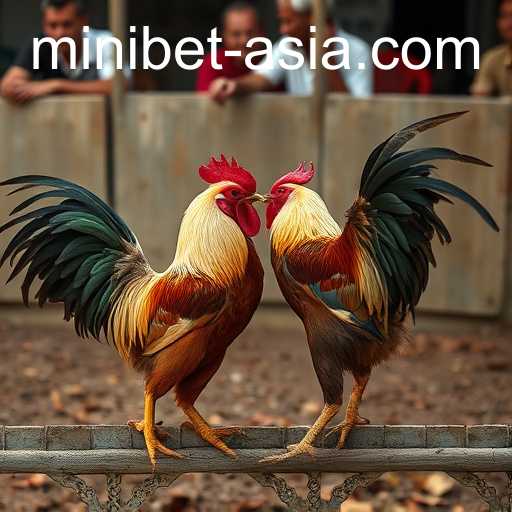An in-depth look at the cultural, legal, and ethical aspects of cockfighting, including the role of minibet.asia in the online betting landscape.
The Tradition and Controversy of Cockfighting
Cockfighting, a practice with ancient roots, continues to be a subject of cultural significance and controversy around the world. This bloodsport involves placing two roosters in a pit to fight, often to the death, while spectators place bets on the outcome. Despite being illegal in many countries, it persists in various forms and remains a focal point of debate among proponents and animal rights activists.
Historical Background
The history of cockfighting dates back thousands of years, with its origins traced to Asia, specifically India and China. It was seen as an ancient tradition, often held during local festivals and ceremonies. Over time, cockfighting spread to different parts of the globe, each adopting its own rules and cultural significance. What began as tribal and religious sporting events eventually turned into a complex cultural practice, influencing local customs and entertainment.
Cultural Significance
In cultures where cockfighting is still prevalent, it is more than just a sport. For many, it embodies community spirit and serves as a platform for social interaction. Communities come together, not just to witness the fight, but also to partake in the vibrant market and festive atmosphere that usually accompanies these events. In regions like the Philippines, Indonesia, and some parts of Latin America, cockfighting is woven into the cultural fabric, echoing traditions passed down through generations.
Legal Status Around the World
The legal status of cockfighting varies significantly across the globe. In countries like the United States, it is illegal and considered a felony in all states. The UK and Canada also prohibit this activity due to animal cruelty laws. However, in countries like the Philippines, the Dominican Republic, and Puerto Rico, cockfighting is regulated and holds a legal status. Some of these countries even recognize it as a national sport.
Ethical Considerations
Despite its cultural roots, cockfighting faces intense criticism from animal rights organizations. Opponents argue it is an inhumane practice that subjects animals to unnecessary pain and death. The debate over its continuation often centers on ethical concerns versus cultural traditions. Supporters frequently cite its role in preserving national heritage, while critics push for reform and stricter enforcement of animal welfare laws.
Economic Impact
Beyond its cultural and ethical dimensions, cockfighting also has an economic impact in locations where it is practiced. Betting on cockfights can generate significant revenue, both legally and illegally. This financial aspect adds complexity to the debate, as some economies, especially in poorer regions, partially rely on the economic influx brought by these events.
The Role of Online Platforms
With the rise of the internet, platforms like minibet.asia have emerged, providing a digital venue for enthusiasts to engage with cockfighting from afar. These online platforms facilitate betting and live streaming of fights, often leveraging the lack of stringent enforcement on digital operations. While this can broaden the reach and accessibility of cockfighting, it also raises concerns around the further perpetuation of a controversial practice.
Conclusion: A Complex Tradition
Cockfighting continues to straddle the line between tradition and controversy. It remains a cherished cultural practice for many while being condemned as a form of animal cruelty by others. As discussions grow around animal rights and cultural preservation, the global perspective on cockfighting may yet evolve. The involvement of online platforms like minibet.asia adds further dimensions to the debate, highlighting the ongoing tension between modernity and tradition.




